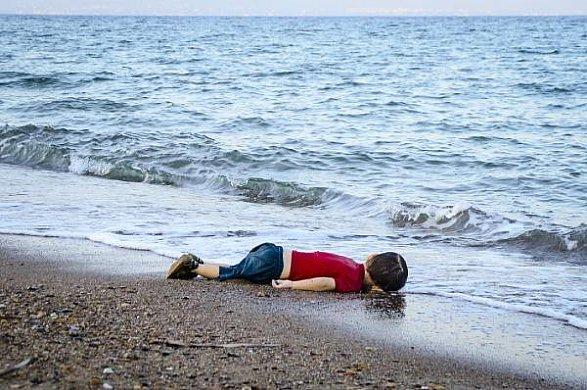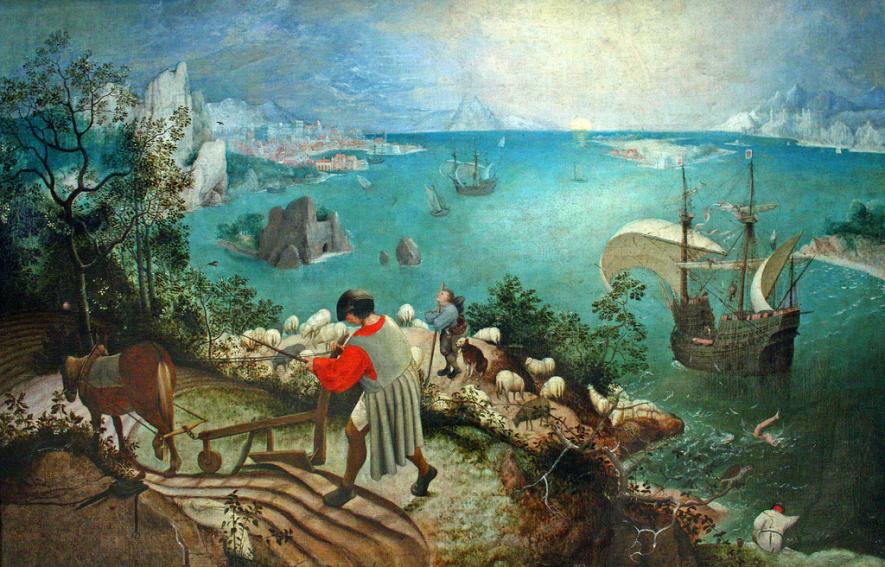Falling From the Sky: The Insignificance of Being Human
We live in an era where an endless flow of images constantly assaults our imagination. Of late, there have been some that did much more. They made us realise how humans have made the lives of fellow humans insignificant. The image of human beings falling off a plane leaving Kabul is the latest in that series. It was almost a relief that the incident took place in the air, where there was no one like the late Danish Siddiqui to capture the cruellest of details. Relief was short-lived though. The impact of the image grew manifold the moment it became known that one of the men that died thus was a 19-year-old footballer from Afghanistan’s youth team. The French footballer Eric Cantona had once quoted Shakespeare to describe footballers as flies to wanton boys. Zaki Anwari proved it, almost literally. Some human beings behave like gods in our age and treat others as wanton boys treat flies. It is their wantonness that consumed Zaki and the others.

Nothing has portrayed the insignificance of human lives better in the recent past than the image of a dead Alan Kurdi. An adorable boy in red shirt and blue shorts, lying prostrate on the sand near the vast ocean. Six years on, this shot by Nilüfer Demir still makes one shudder at the truth captured in a frame: a child’s life in our world is as cheap as a plastic bottle thrown away in the sea. The sea washes both ashore. When this image ripped us apart in September 2015, artists poured their hearts out. Some gave Alan wings which would fly him to heaven, some placed him in the lap of god. In the mortal world it did force some European powers to take a more moderate view of the refugees, but by and large, that haunting image has neither made humans more compassionate to the less fortunate, nor less xenophobic.
Nilufer’s frame showed a small boy vis-a-vis a huge expanse of water. The next image that comes to mind did not have someone in the frame, such is the insignificance. The image only showed a few rotis lying on a railway track. It was May 8, 2020. Sixteen migrant workers were run over by a goods train near Aurangabad while they were asleep. These were people trying to walk home, all the way from Maharashtra to Madhya Pradesh, as the country went into lockdown at four hours’ notice. Their fault was that they figured no train would pass as passenger trains had stopped plying from midnight on March 25. What was responsible for those deaths? The apathy of the system, or the apathy of a nation? The Prime Minister did tweet his shock and sorrow when the news went public. But, perhaps he did not have such people in mind while announcing the lockdown. There is no dearth of images which captured the inhuman struggle of migrant workers during the nationwide lockdown.

However, this image showed what they really were for a number of their countrymen: non-existent. Sounds harsh? Maybe. But what is worse is that the family members of the 16 dead near Aurangabad had not receieved their death certificates till March this year.
Similarly, the men falling off the plane that was leaving Kabul were mere dots in a frame owned by the flight and the blue sky. It is pictorial proof that human invention has outgrown human emotions. When a plane is to leave it shall leave, no matter how many cling on to its wheels. We could not be more insignificant to our own species.
Flying has been one of the oldest human fantasies. Myths in all parts of the world have something or the other on flying. Perhaps the most heart-breaking story is the one about Icarus, the son of Daedalus. Icarus’ wings were made of feather and wax. He flew too close to the sun and the wax melted. He fell into the sea and died. Insignificant humans might have to look for consolation, not in this Greek tale but in the Renaissance painting that this story inspired.
One may struggle to spot Icarus in Pieter Bruegel the Elder’s ‘Fall of Icarus’ at first glance. You can see a man pushing his horse in the foreground and a shepherd with his dogs, his lambs grazing. You can see a man fishing, a bird sitting idly on the branch of a tree. In the background is the unmissable sea, with ships of different sizes. There is the sky, of course. You can even see mountains far away, and other islands. But where is Icarus? You can only see his legs as he drowns. The world around him does not even notice.

Neither will the world think too much of the Afghans falling from the sky. Countries, including our own, will keep turning away refugees. Nor will the Taliban change. We can only console ourselves thinking human beings must always have been this insignificant to other humans. An artist would not have drawn Icarus that way if that wasn't so.
The writer is an independent journalist based in Kolkata. He loves to write on politics, society and sports. Views are personal.
Get the latest reports & analysis with people's perspective on Protests, movements & deep analytical videos, discussions of the current affairs in your Telegram app. Subscribe to NewsClick's Telegram channel & get Real-Time updates on stories, as they get published on our website.
























